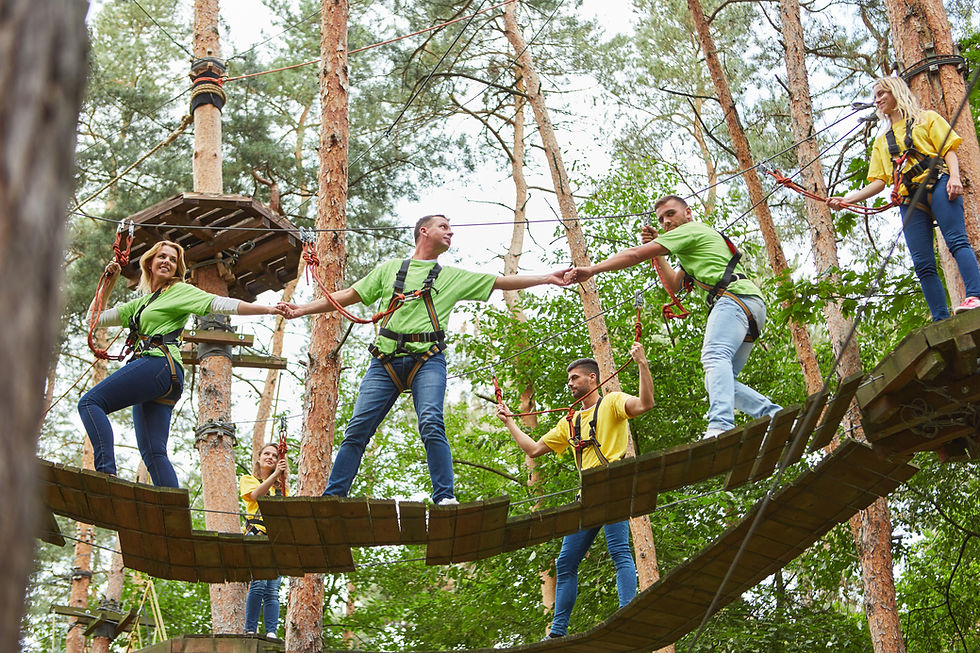There's an aspect to stepping outside of our comfort zone that doesn't get talked about as much as some of the more positive angles. However, it's actually the part that has the most influence over whether we actually get started on something new at all. And that is "the fear".
I think the reason it doesn't as much attention is the popular narrative around “feel the fear and do it anyway” which is not really that helpful if you are caught in the headlights and stuck in a place of pure terror - or if you don't even know how or where to start.
The first thing to say about fear is that I don't think we give it its fair dues. From an evolutionary perspective, fear is what has allowed us to stay alive. It primes us to scan for threat and stay alert and that has proven very useful over the years given that we definitely fall short in terms of fangs or claws...
Given that fear can feel overwhelming by at times, I thought it might be useful share some of the psychological strategies I use to navigate it. But I am not going to encourage you to override that fear because, as I said at the beginning, I believe it plays a really important role. I
I love Elizabeth Gilbert’s analogy when she talks about letting fear travel on the journey – it can sit in the back seat it might even come into the front passenger seat at times, but it's not allowed to take a grip of the steering wheel. And that is the balance we are striking when we take on a new challenge it is healthy and helpful to have some level of anticipation to drive our planning, but our decisions and perspective should not be rooted in fear.
My first piece of advice is to seek out guidance expertise. Finding people more experienced you can trust and learn from is invaluable and means you are not having to rely on your own knowledge and motivation. We are designed to collaborate and work in teams - so if you don't already have one to hand, find a mentor and start to build that community of support around you.
My second strategy is to remind myself of times when I have done hard things before. A concept I often use with clients is this idea of having a psychological core of resilience (similar to training our physical core in the gym). This consists of the knowledge and skills you have gained from all the times when you have achieved something you didn’t think was possible. This might be meeting a tough deadline, going for a promotion or standing at the top of a mountain. The activity itself doesn’t matter – it is the memory of the before and after that counts. It means that when you think you are starting something new, you are actually not - you are simply building on existing skills you have already developed. So, lean on your past experiences, because nothing helps quieten the fear like evidence that you already have what you need.
My third point is more about how to deal with the fear when it hits you in the moment. The problem with fear is it’s not usually very convenient. It tends to pop into our heads at 3am or grab us when we're feeling overwhelmed. My advice is to recognise the context in which you are in when you are having those thoughts. When we are tired and depleted, threat feels much greater and the things that we can normally cope with in suddenly magnify; it’s when we ruminate on things that we might have said or done and regret. In these moments, when the fear is starting to spiral, I use a technique I call “parking it”. I take a few deep breaths and then say to myself (sometimes out loud…) “It is important to think about this, but not right now – I’ll come back to you later”. One of the challenges with trying to stop thinking about fear, is that it makes you think about it more. So instead, give yourself a time to think about, but just not right now - you can even set a time if it helps. Usually by the time I pick it up again, things have moved on and I can see it through a different perspective.
The final strategy I want to share around fear, is that it is usually accompanied with an urge to “fight, flight or freeze”. If that is the case – either in planning or in the moment – then break it into the tiniest step you can manage. The goal is to try and regain a sense of control and agency over yourself or your body and in taking a physical actions, we reassure the spiralling brain that there is something we can do. This gives our frontal lobe (the rational part) the chance to catch up and gain some traction on our reactive brain, buying us some time to avoid making decisions based in panic. This is the same principle whether we are clinging to a rock face, giving a presentation or stepping into new class at the gym.
I hope that this article helps you to give some reassurance that not only is fear completely normal (and can be very useful at times) but that there are also some strategies you can use if you find yourself caught in the overwhelm. And if you need some support in your corner, please reach out to nicki@resiliencework.co.uk and we can help you take those first steps.

